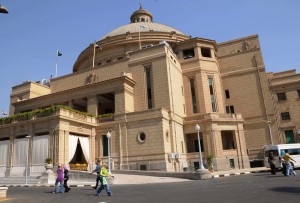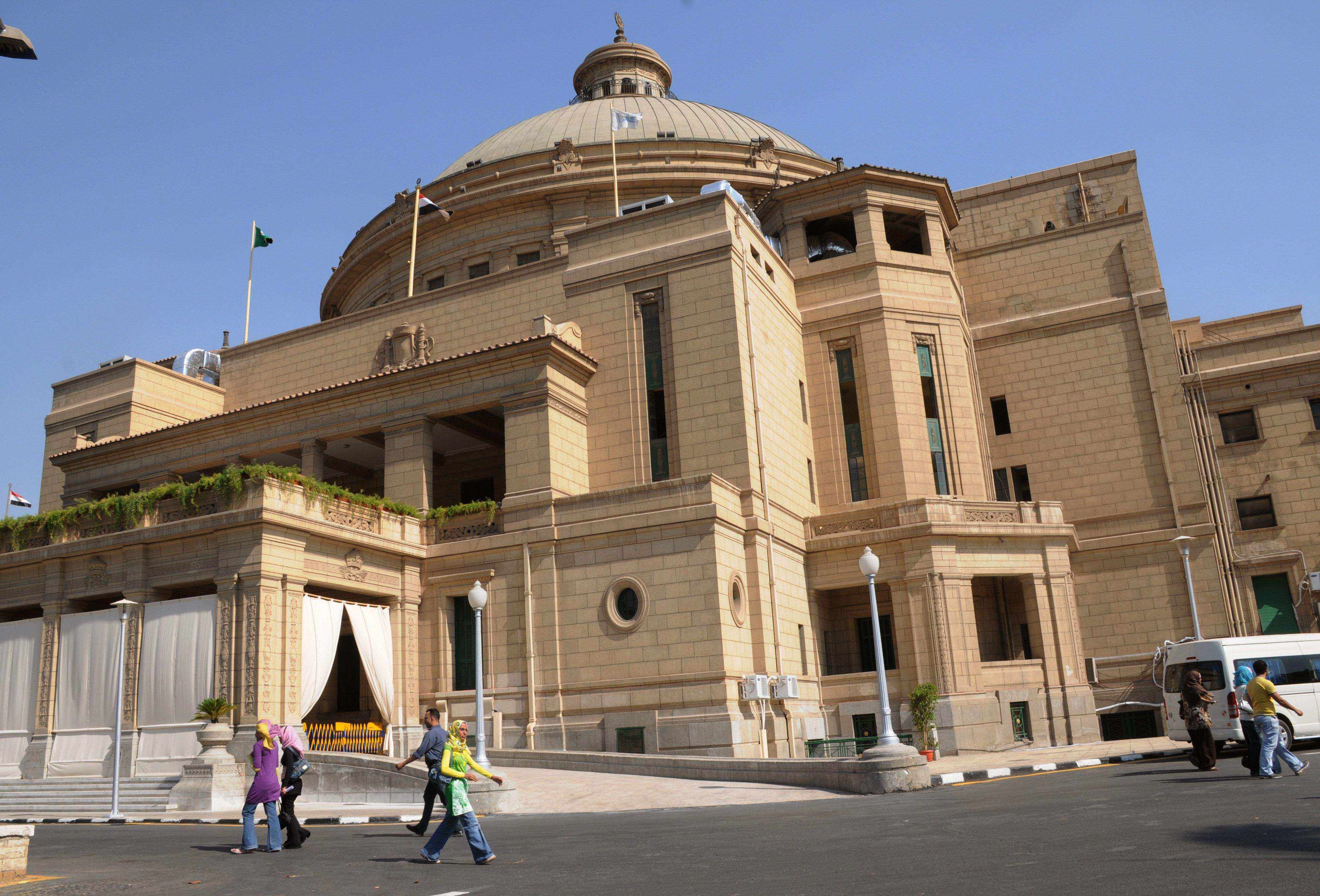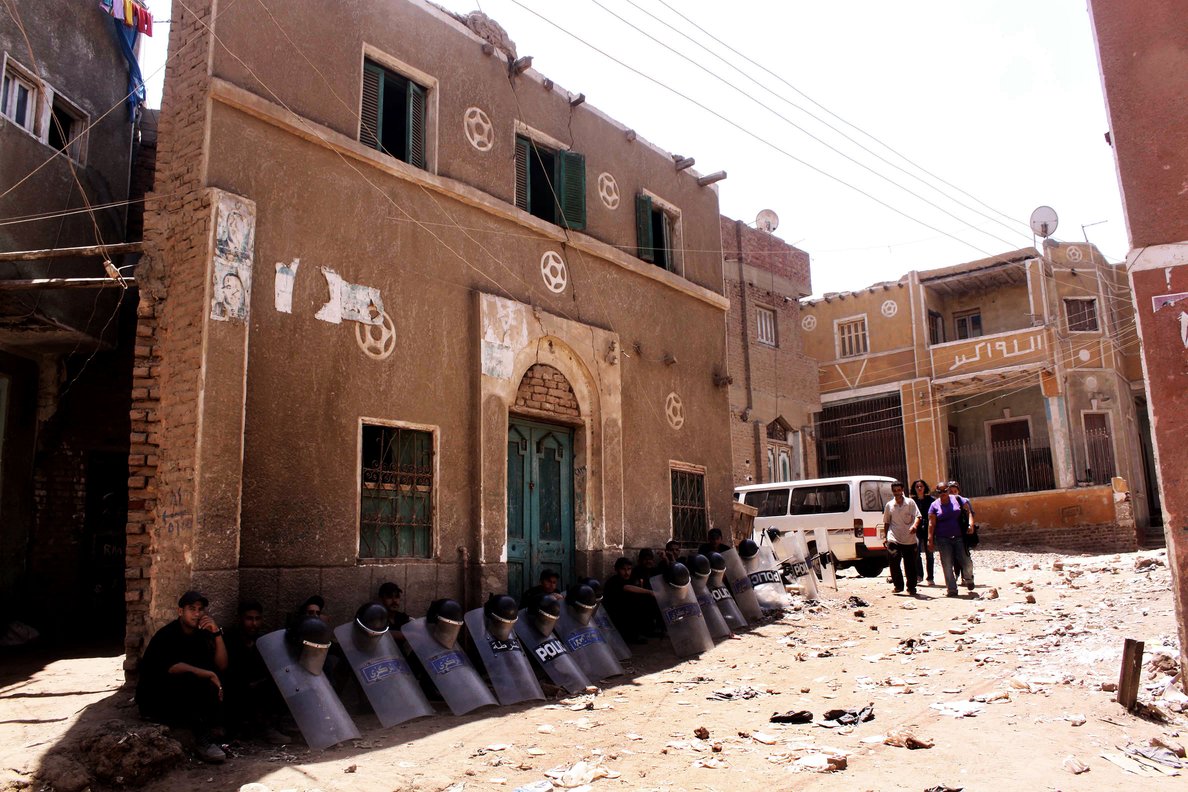
(AFP Photo)
Students attending a conference on the constitution at Cairo University on Tuesday strongly criticised Minister of Higher Education, Hossam Eissa, for failing to stall the decision to deputise a number of administrative security personnel to arrest students.
Minister of Justice, Adel Abdel Hameed, issued the decision to deputise university security two weeks ago under the pretext of a “lack of security” in university campuses. The decision gives the deputised security personnel the right to file reports against students who commit crimes.
Eissa denied that he had a hand in the decision, said Hisham Ashraf, head of the Cairo University Student Union. He added that the decision was called for by former Minister of Higher Education Mostafa Mosaad, who was also the Chairman of the Supreme Universities’ Council at the time.
“Eissa said he will not enforce the decision in any university,” Ashraf said. Eissa added that he will call upon the Supreme Universities’ Council to vote on cancelling the decision during the council’s next meeting.
Ashraf stated that the decision has not yet come into effect, as the Ministry of Justice is waiting on a list of names to be deputised. The list is supposed to be submitted by the Supreme Council of Universities.
Cairo University chairman, Gaber Nassar, cancelled the decision in Cairo University on Sunday, although it remains in effect in other public universities. Ashraf said that in Tuesday’s conference, Nassar explained that his decision to cancel deputising university security was a result of the students’ demands.
Nassar’s statement incited discontent among students attending the conference; they soon called on Eissa, who was present at the time, to issue a decision cancelling deputising security personnel nationwide.
Mohamed Mohamedein, chairman of the Suez Canal University in Ismailia, cancelled the decision in the university on Tuesday. The cancellation followed a meeting between Mohamedein and students, student union representatives and staff members, said Ibrahim Abdel Rahman, the university’s media director. He added that following the cancellation, the university’s student union cancelled a planned protest, which was due to take place on Sunday.
“The decision to cancel deputising security was taken to ease the students’ minds,” Abdel Rahman said. He added that Mohamedein stated that should any security problems arise within the university, he would resort to the Ismailia security directorate.
Abdel Rahman said that each public university chairman should decide, based on the circumstances of his university, whether he needs to carry out the decision to deputise security. He added that the Suez Canal University, for instance, has decided to allow student demonstrations on campus on the condition that they are peaceful, void of any religious slogans and the university administration is notified in advance.
The decision to deputise university security for arresting students stirred nationwide controversy, as several student unions strongly rejected it.
Until 2009, the Ministry of Interior was responsible for providing Homeland Security personnel for securing universities. In 2009, the administrative court banned this decision, establishing an “administrative” university security.



